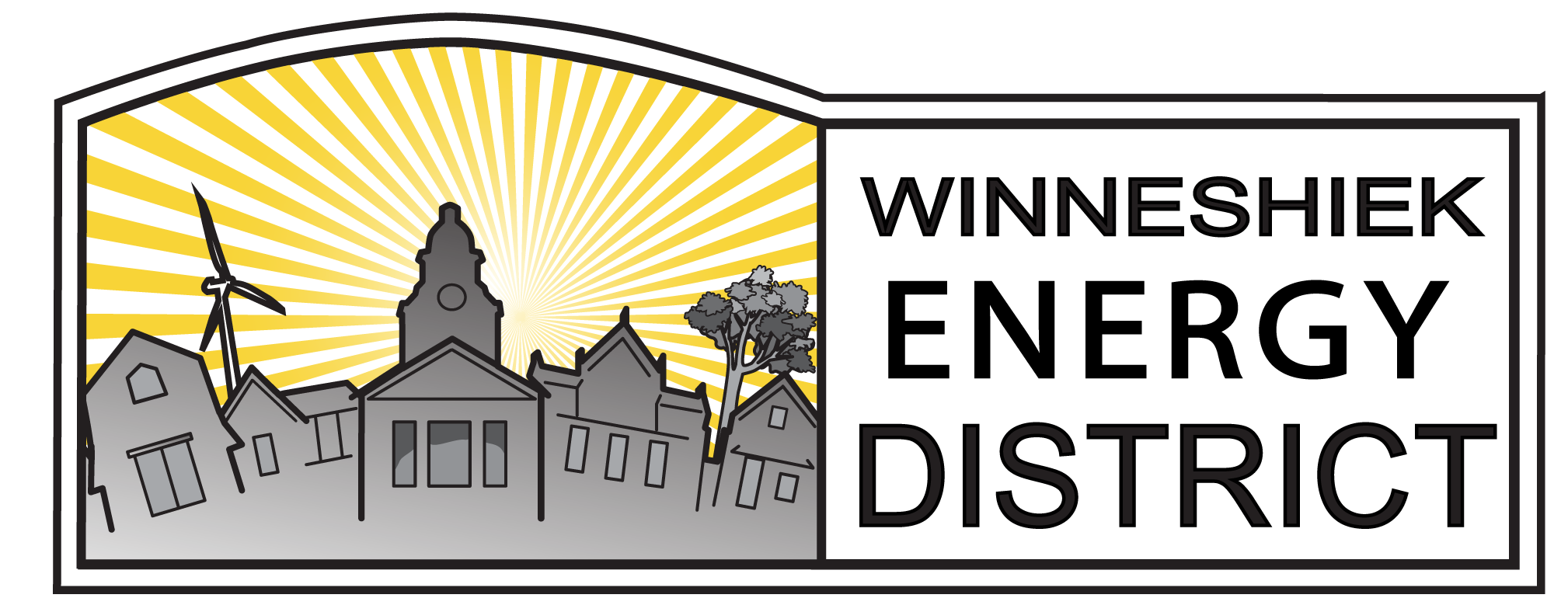WED Wins Grant, Brings New EV Charging to County
by Paul Cutting, Energy Planner
Winneshiek Energy District is excited to partner with six Winneshiek County organizations and the Community Foundation of Northeast Iowa to bring public-facing electric vehicle charging to downtown Calmar, Northeast Iowa Community College’s Calmar campus, Winneshiek Medical Center, the new Sunflower Child Development and Discovery Center, downtown Decorah at the Chamber of Commerce, and Seed Savers Exchange.
The roughly $45,000 project is being funded, in part, through the support of the Winneshiek County Community Foundation and through financial commitments of all six partnering organizations. The level 2 chargers will be available for public, workplace and fleet charging.
For the past two years, Winneshiek Energy District has worked with other regional organizations to help plan for an electrified transportation future. Last fall we co-hosted a Get Charged Up! EV Event with Upper Explorerland Regional Planning Commission that brought together local business and government leaders. Northeast Iowa Resource Conservation and Development (RC&D) led a study of the opportunities relating to electric vehicles and tourism. RC&D’s work identified dozens of best-suited locations for charging infrastructure throughout northeast Iowa. In addition, Luther College is finishing work on an economic analysis of the economic benefits of the EV transition as it relates to Northeast Iowa.
One aim of this project is to create opportunities for workplace-based EV charging. Being able to charge at work alleviates a few challenges of the EV transition. First, with ranges of EV’s somewhat less than their internal combustion engine equivalents, workplace charging lessens concerns of range anxiety, which is frequently cited as a key obstacle for consumer EV adoption. Workplace charging also provides options for renters and students who might not otherwise have charging options at home. Until fast charging becomes commercially available at gas stations and other public places throughout northeast Iowa, projects such as these will meet an important need.
This project also serves as an exciting opportunity for partnering organizations to explore how they might electrify their respective vehicle fleets in the future. Some categories of institutional fleet vehicles, like those used for deliveries, tend to be used in predictable ways and pair well with workplace-based charging where workers charge personal vehicles during the work day and fleet vehicles overnight.
